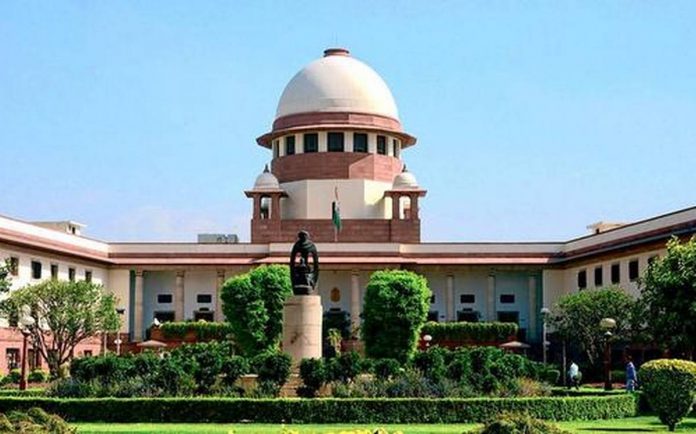Selective disclosure to media affects the right of the accused in some cases and the rights of victims’ families’ in the other, the media does have a legitimate stake in fair reporting, the Supreme Court said this while ordering a CBI investigation and setting aside an anticipatory bail order of the in-laws in a dowry death case.
A bench of Justices Dr D.Y. Chandrachud, Indu Malhotra, and Indira Banerjee said the grant of anticipatory bail in a serious offence would operate to obstruct the investigation. The court has set aside the order of the Allahabad High Court which had granted anticipatory bail to the father-in-law, the mother-in-law, the brother-in-law and the sister-in-law in a case of dowry death.
The father of the deceased filed an appeal before the Supreme Court seeking the cancellation of anticipatory bail and an investigation by the CBI. The court noted that the husband is already in jail and the father-in-law, mother-in-law, brother-in-law and sister-in-law had been granted bail by the High Court without assigning reasons in the order as mandated by the law.
The Apex Court noted the infirmities with the findings of the learned judge of the Allahabad HC who had noted in his order that
(i) The applicants for bail are the father-in-law, mother-in-law, brother-in-law and sister-in-law;
(ii) The spouse of the deceased is in custody; and
(iii) The FIR is not to be treated as “an encyclopedia of the prosecution’s case but must reflect the basic prosecution case.”
Having recorded the above premises, the Single Judge held that (a) “the FIR prima facie appears to be engineered to implicate the applicants”; (b) “there is no co-relation between the various allegations leveled in the FIR”; and (c) the allegations “are general in nature” with no specific role being assigned to the accused.
The Apex Court said, “We have prefaced this analysis by a reference to the FIR. There is no cogent basis for the Single Judge to have arrived at any of the three prima facie findings.”
The Supreme Court said, “The judgment of the Single Judge of the High Court of Judicature at Allahabad is unsustainable. The FIR contains a recital of allegations bearing on the role of the accused in demanding dowry, of the prior incidents of assault and the payment of money by cheque to the in-laws of the deceased. The FIR has referred to the telephone calls which were received both from the father-in-law of the deceased on the morning of 3 August 2020 and from the deceased on two occasions on the same day- a few hours before her body was found. The grant of anticipatory bail in such a serious offence would operate to obstruct the investigation. The FIR by a father who has suffered the death of his daughter in these circumstances cannot be regarded as “engineered” to falsely implicate the spouse of the deceased and his family. We hasten to add that our observations at this stage are prima facie in nature, and nothing that we have said should be construed as a determination on the merits of the case which will be adjudicated at the trial.”
During the course of the hearing, the Apex Court was informed by the counsel appearing for the State that no investigation was conducted into the allegation in the FIR that the deceased had been murdered. The Court further noted the suicide note which was found from the deceased had found its way to the newspaper which led to its publicity.
The Court said, “The sequence, in this case, appears to follow familiar patterns. Immediate publicity was given to the alleged suicide note. These examples are now becoming familiar. Selective disclosures to the media affect the rights of the accused in some cases and the rights of victims’ families in others. The media does have a legitimate stake in fair reporting. But events such as what has happened in this case show how the selective divulging of information, including the disclosure of material which may eventually form a crucial part of the evidentiary record at the criminal trial, can be used to derail the administration of criminal justice. The investigating officer has a duty to investigate when information about the commission of a cognizable offence is brought to their attention. Unfortunately, this role is being compromised by the manner in which selective leaks take place in the public realm. This is not fair to the accused because it pulls the rug below the presumption of innocence. It is not fair to the victims of crime, if they have survived the crime, and where they have not, to their families. Neither the victims nor their families have a platform to answer the publication of lurid details about their lives and circumstances. Having said this, we prima facie reject the insinuation that the FIR had not doubted or referenced the suicide note, despite its publication in the news media.”
“It would indeed be a travesty if this Court were to ignore the glaring deficiencies in the investigation conducted so far, irrespective of the stage of the proceedings or the nature of the question before this Court. The status of the accused as propertied and wealthy persons of influence in Agra and the conduct of the investigation thus far diminishes this Court’s faith in directing a further investigation by the same authorities. The cause of justice would not be served if the Court were to confine the scope of its examination to the wisdom of granting anticipatory bail and ignore the possibility of a trial being concluded on the basis of a deficient investigation at best or a biased one at worst,” noted the Court, while transferring case to the CBI.


